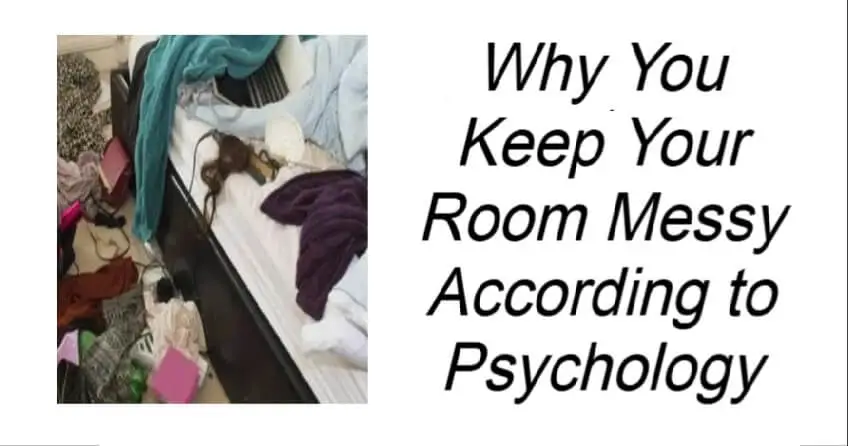Why You Keep Your Room Messy According to Psychology
Have you ever looked around your messy room and thought, “Why can’t I just clean this up?” You’re not alone.
While society often associates clutter with laziness or a lack of discipline, psychology paints a far more nuanced picture. In fact, a messy space can say a lot about your mental state, personality, and even your creative process.
Here’s what science has to say about the reasons behind the mess — and why it’s not always a bad thing.
1. A Messy Room Reflects a Busy or Overwhelmed Mind
One of the most common explanations is that a disorganized space mirrors internal stress. When you’re emotionally or mentally drained, cleaning often falls to the bottom of your to-do list.
- Stress & Burnout: High levels of stress impair your ability to manage daily tasks like tidying.
- Depression: When energy and motivation are low, clutter can build — which can, in turn, worsen mood.
- Anxiety: A busy mind may struggle to prioritize or focus on cleaning, even if the clutter causes more anxiety.
Important note: This isn’t a character flaw. It’s often a sign your mental load is just too heavy.
2. The Creative Brain Craves a Bit of Chaos
Believe it or not, a mess can actually boost creativity. Studies have shown that highly creative individuals often thrive in less structured environments.
- A 2013 study from the University of Minnesota found that people in messier environments generated more original ideas.
- Freedom Over Order: Some people feel stifled by a perfectly ordered space — chaos can fuel inspiration.
In this case, the clutter isn’t a failure; it’s a byproduct of a mind busy with ideas, not laundry.
3. Mess as Comfort and Control
For some, messiness is deeply personal — a way to reclaim autonomy in a world filled with rules and expectations.
- Autonomy: Choosing not to clean might be a subtle way to assert control over one’s own space.
- Nonconformity: A messy room can serve as quiet rebellion against rigid upbringing or societal norms.
It’s not about the mess — it’s about the freedom to live authentically, without performance.
4. Executive Dysfunction Is Real
Many people with ADHD, autism, or other neurodivergent conditions struggle with what’s called executive dysfunction — difficulty starting, organizing, or completing tasks.
- Initiation paralysis: Starting to clean feels overwhelming or impossible.
- Task-switching challenges: Losing track midway through or getting stuck on one small thing is common.
- It’s not laziness: It’s a neurological difference in how tasks are processed.
Understanding this can replace shame with compassion — and lead to more supportive strategies.
5. The Clutter-Procrastination Spiral
Often, mess builds slowly — until it becomes too much. And the more overwhelming it feels, the more we avoid it.
- Mental Block: The larger the mess, the higher the anxiety — and the more likely we are to ignore it.
- Perfection Paralysis: Waiting for the “perfect” time or method to clean often leads to doing nothing at all.
Sound familiar? You’re not alone — and you’re not failing.
Final Thoughts: It’s Okay to Be a Little Messy
Sure, a tidy space can promote calm and productivity. But messiness doesn’t automatically mean something’s wrong with you.
The key is self-awareness. If the mess starts affecting your mood, relationships, or quality of life, it might be time to explore what’s behind it.
Otherwise? A little clutter can be the sign of a creative thinker, a person with priorities, or someone simply giving themselves a break.
So next time you glance around your messy room, skip the self-judgment. Instead, ask yourself: What do I need right now — less clutter, or less pressure?
You’ve just read, Why You Keep Your Room Messy According to Psychology. Why not read Manager Had To Hire A New Employee.

